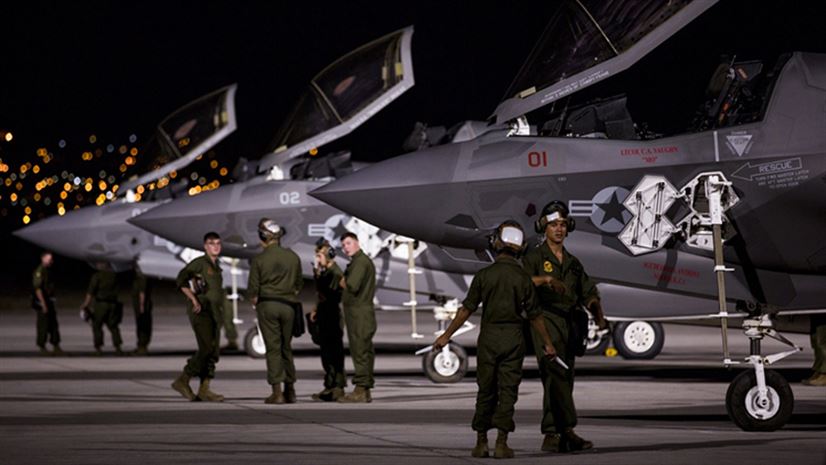Americans flying home from 2018’s SHOT Show this weekend may not know it, but their aircraft could face an unusual challenge as they fly through Nevada: intermittent access to global positioning satellites.
The U.S. Air ForceAir ForceAir Force commenced the first of three Red Flag war games on Friday; aimed at providing a realistic approximation of combat operations against a peer or near-peer level opponent for U.S. and allied aircraft. Throughout Red Flag’s 42 year history, 28 nations have participated in the training event, with many more attending as observers. This year’s Red Flag training exercise, however, promises to be the largest ever conducted, and in an effort to increase the challenges faced by the combat pilotscombat pilotscombat pilots participating, Nellis Air Force Base is jamming access to GPS satellites, just as an enemy nation might do to hinder attacks from the air during war-time.
Air, space, and cyber elements will all be brought to bear over the next three weeks of mock combat operations over the Air Force’s massive 15,000 square mile training area that also happens to be home to secretive installation many know as Area 51. According to advisories issues throughout the region, the effects of the massive GPS jammers used to approximate combat conditions will likely be felt beyond the confines of the training area, however, and the DoD warns that the exercises may cause delays in Las Vegas’ McCarran Airport, as well as others as far away as Los Angeles. Flights may be forced to reroute, and others could “experience navigational disruption, including suspension of Descend-via and Climb-via procedures.”
It’s no surprise that Red Flag 18-1, which is said to be a “primarily strike package focused” exercise, is cutting off its pilots from access to global positioning satellites. GPS denial is a growing concern among military planners, especially amid reports that Russia has already begun conducting tests of their own GPS spoofing technology over portions of the Black Sea. That region has seen other forms of Russian digital denial enterprises tested as well, including communications jamming during the joint Russian/Belarusian Zapad military drills held last year.
If pilots grow too reliant on GPS coordinates to identify targets and deliver ordnance, they would be at a serious disadvantage when operating in GPS denied airspace, but the concerns of Defense officials are not limited to simply being cutoff from access to the technology. Last year, reports out of Russia indicated that as many as 20 ships were affected by a GPS spoofing attack that made their GPS equipment display their location miles away from where they actually were, something noticed first by a captain whose GPS read that his ship was currently some 32 kilometers inland. These reports, however, have not been confirmed by the Russian government.
This year will see participation from the United States Air Force, United States Navy, United States Army, United States Marine Corps, Royal Australian Air Force and Royal Air Force.
“We’re not going to go to war alone,” Air Force Lt. Col. Mark Sadler said during last year’s Red Flag exercises. “The more we can do joint exercises like Red Flag — where we get everybody together and learn from each other — the more we can better use each other’s tactics, techniques and procedures to successfully go after whatever the problem set is.”
Image courtesy of the Department of Defense
Already have an account? Sign In
Two ways to continue to read this article.
Subscribe
$1.99
every 4 weeks
- Unlimited access to all articles
- Support independent journalism
- Ad-free reading experience
Subscribe Now
Recurring Monthly. Cancel Anytime.











COMMENTS